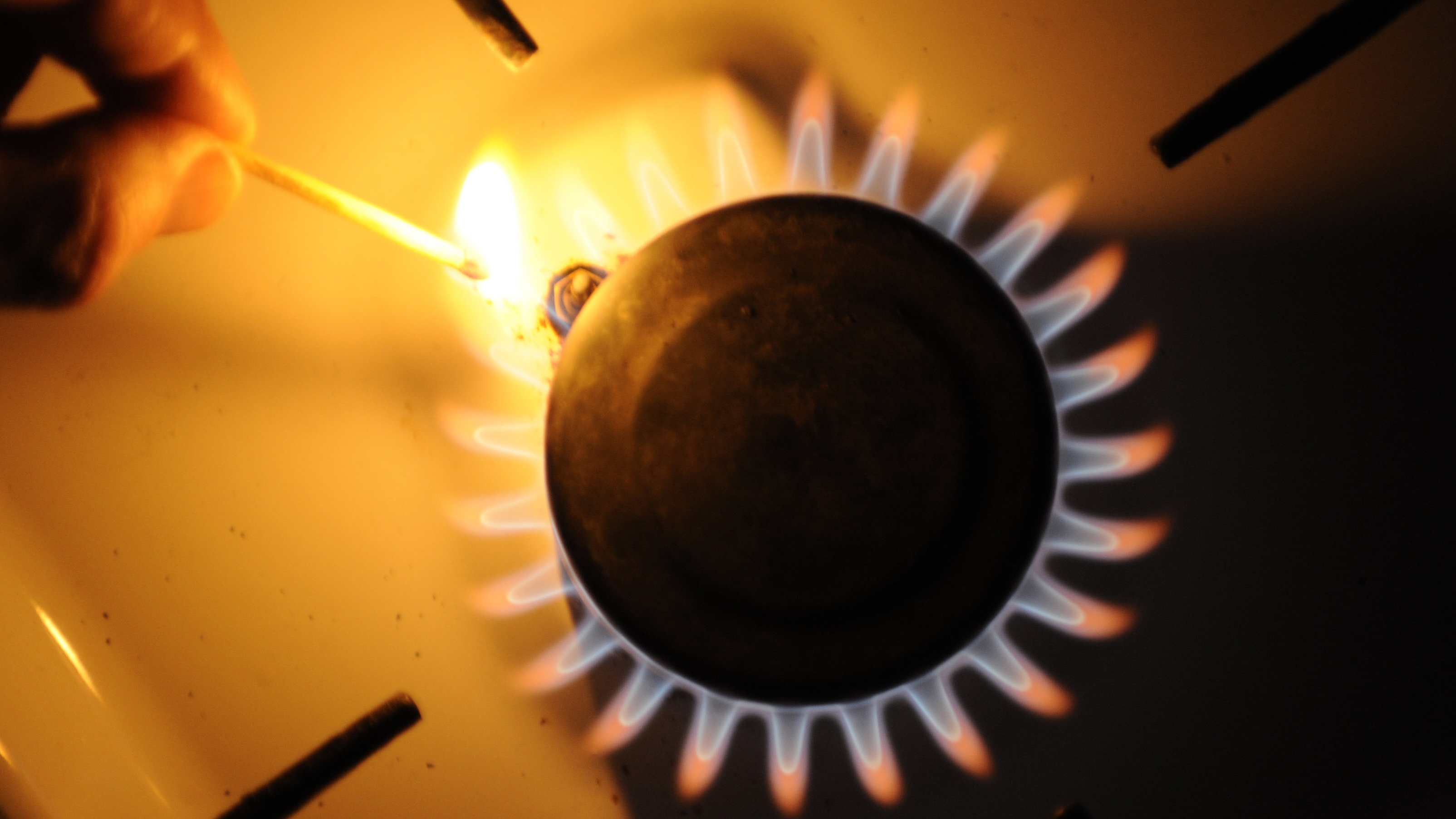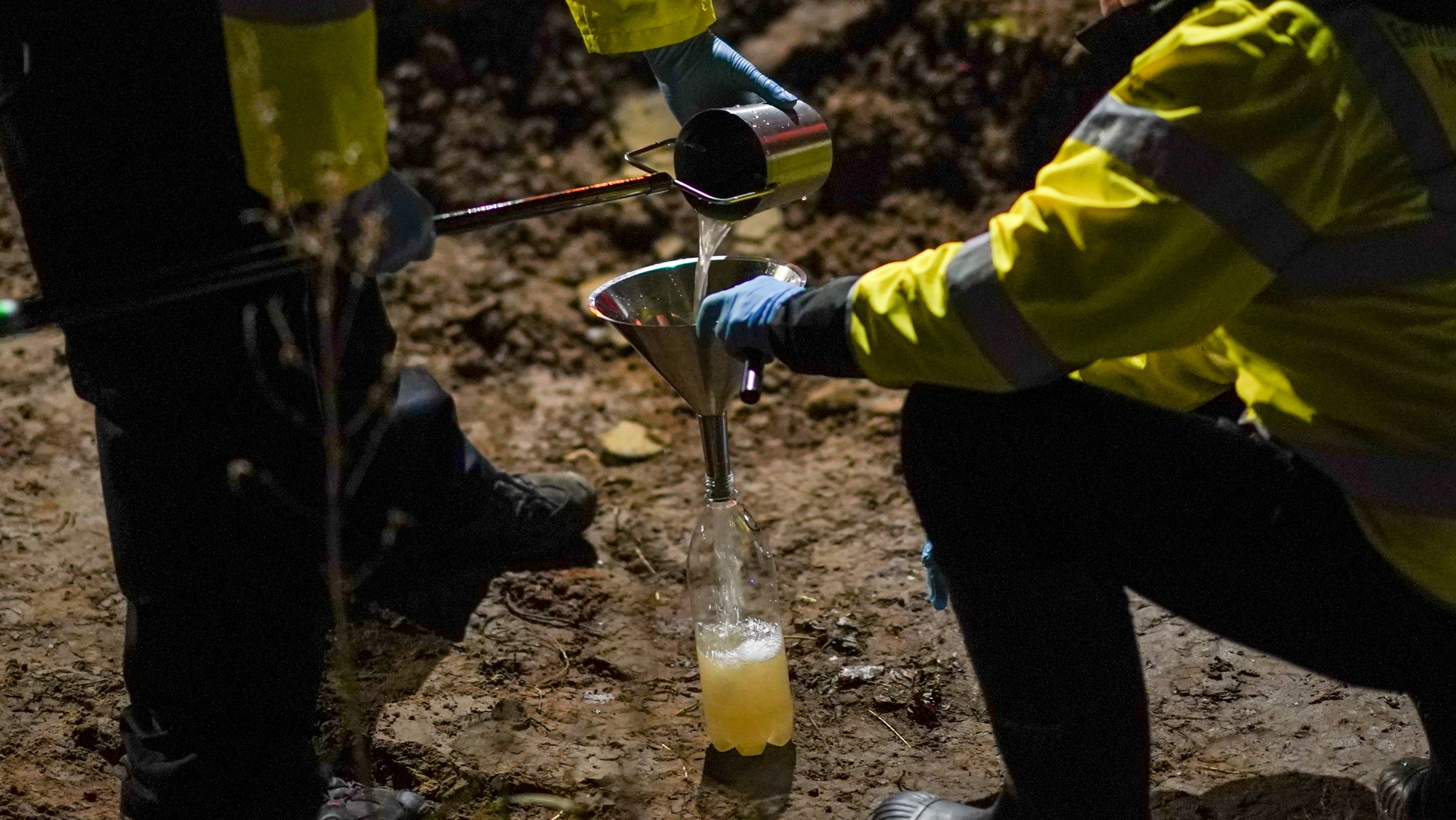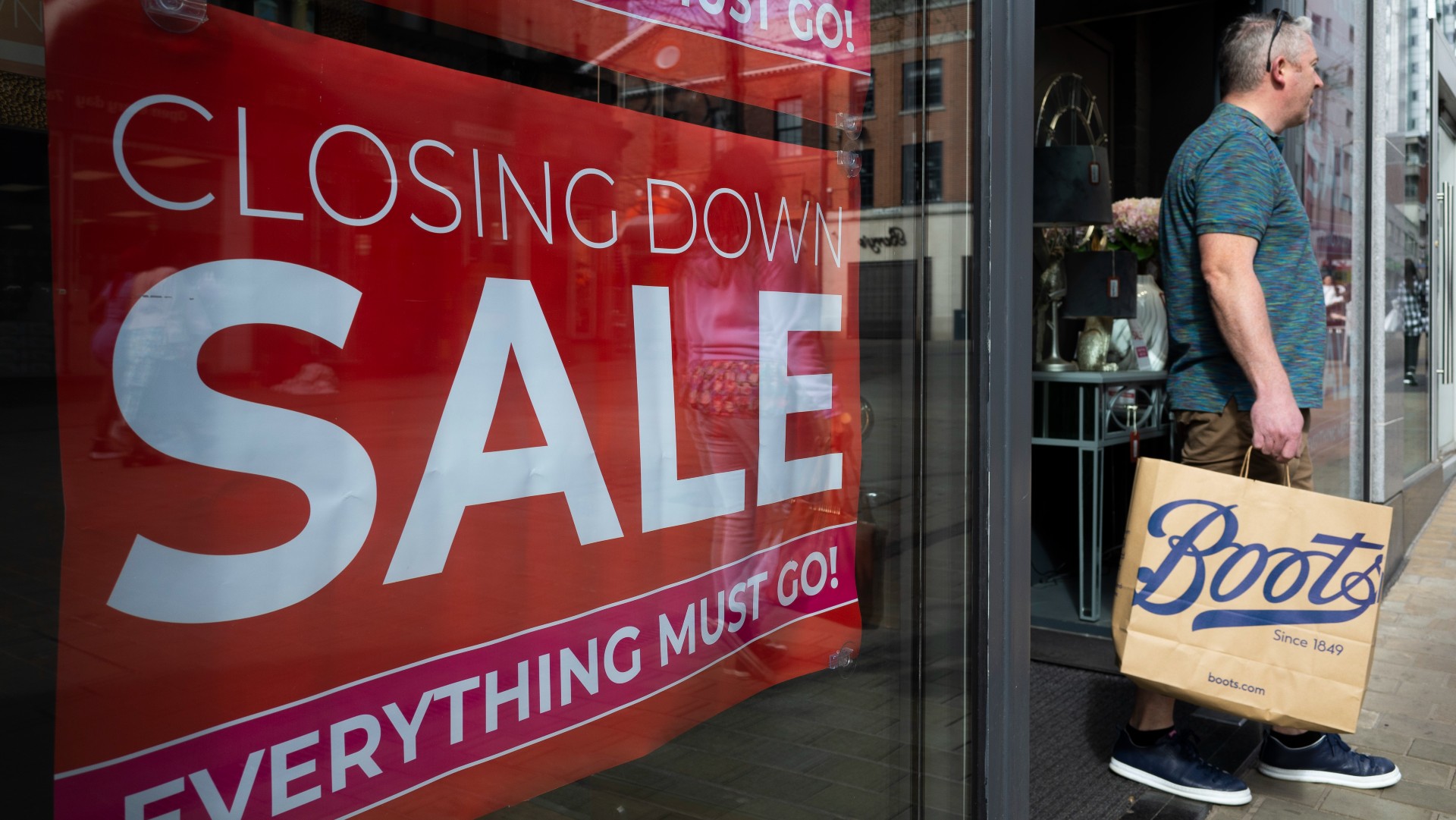What the UK’s gas crisis means for customers
A surge in global demand for gas has left smaller energy suppliers on the brink of collapse

A free daily email with the biggest news stories of the day – and the best features from TheWeek.com
You are now subscribed
Your newsletter sign-up was successful
Soaring gas prices have sparked a surge in energy costs, with several small suppliers collapsing and many more at risk.
Business Secretary Kwasi Kwarteng is due to meet energy producers and suppliers today in an effort to tackle the crisis. It is thought that bigger energy companies “will be offered state-backed loans to take on hundreds of thousands of customers from smaller firms as they go bust this winter”, The Times reported.
Bulb, the UK’s sixth-largest energy supplier, is seeking a bail-out to stay afloat, while four smaller companies are expected to go bust by next week.
The Week
Escape your echo chamber. Get the facts behind the news, plus analysis from multiple perspectives.

Sign up for The Week's Free Newsletters
From our morning news briefing to a weekly Good News Newsletter, get the best of The Week delivered directly to your inbox.
From our morning news briefing to a weekly Good News Newsletter, get the best of The Week delivered directly to your inbox.
Boris Johnson has insisted the problems are “temporary”, telling a pool of journalists accompanying him on his visit to the US this week that the surge in demand for gas was caused by the resurgence of the global economy as the Covid pandemic begins to retreat.
“It’s like everybody going back to put the kettle on at the end of a TV programme, you’re seeing huge stresses on the world supply systems. But you’re also seeing businesses bouncing back strongly,” he told reporters.
What has happened?
The gas crisis stems from a “global surge in demand for gas following a cold winter that left gas storage facilities depleted” followed by a “rebound in post-lockdown energy demand across Asia”, The Guardian explained.
A free daily email with the biggest news stories of the day – and the best features from TheWeek.com
Market prices have now surged due to a “race to refill gas stores” before colder temperatures set in this winter. The “global gas grab” is a concern as half of the UK’s electricity is generated by gas-powered plants, explains the paper.
The demand for gas has also been compounded in the UK by a series of nuclear reactor outages, and a shut down of a major power cable that brings in electricity from France.
Wholesale gas prices are up 250% since January, leaving smaller suppliers facing collapse “as the price hikes have made their price promises to customers undeliverable”, reported i news.
Rising gas prices also threaten steelmakers in the UK, while shortages of carbon dioxide caused by inflated prices could pose a threat to suppliers of meat and fresh produce. Two fertiliser plants in the north of England were also forced to stop production due to rising gas prices.
What companies are at risk of collapse?
The UK’s sixth-largest energy company, Bulb, is currently at risk of collapse, with at least four other firms expected to go bust by next week, according to the BBC.
The as yet unnamed four have reportedly asked for “larger players to bid to take over the supply to one million customers”, according to industry sources.
Meanwhile, five small energy companies have ceased trading in recent weeks, including Edinburgh-based People’s Energy, which supplied gas and electricity to about 350,000 homes and 1,000 businesses, and Dorset-based Utility Point, which had 220,000 customers, said the BBC.
PfP Energy and MoneyPlus Energy also collapsed last week, leaving more than 100,000 customers without an energy supplier, while HubEnergy went bust in August.
According to analysis from Baringa Partners, the crisis could leave the UK with as few as ten energy suppliers, down from 70 at the beginning of 2021.
What can the government do?
Business Secretary Kwasi Kwarteng has sought to reassure consumers that gas and electricity supplies will continue uninterrupted even if their supplier goes bust.
“Some energy companies are facing pressure. Ofgem has robust measures in place to ensure that customers do not need to worry, their needs are met, and their gas and electricity supply will continue uninterrupted if a supplier fails,” he tweeted this weekend.
Kwarteng held talks with energy suppliers and operators over the weekend and will hold an emergency summit with gas industry leaders today.
The government is said to be considering providing “loan guarantees to big suppliers to help them to cover the costs of taking on failed suppliers’ customers”, said The Times.
The costs, which could run to “hundreds of millions of pounds”, would then be “recouped through domestic energy bills”, the government hopes.
However, Foreign Office minister James Cleverly has said that “ideally” businesses should stay afloat “through their own efforts”.
The government has also indicated that it may appoint a “special administrator” to run failed suppliers if customers are unable to be appointed a new energy supplier by Ofgem, “effectively nationalising them”, said The Times.
UK energy suppliers are said to be pushing for the creation of a so-called “bad bank” to “absorb potentially unprofitable customers from failing rivals,” reported the Financial Times.
The companies are asking the government to create a “Northern Rock-style bad bank”, which could house those customers that surviving energy companies would not be able to take on without losing money, explained the paper.
Kwarteng is said to be “examining the proposals and has accepted that significant intervention may be necessary”, while insiders said he was looking at “Plans C, D and others”.
What should customers do if their supplier goes bust?
Customers will still receive gas and electricity even if their energy provider collapses. The gas and electricity regulator Ofgem will move them to a new supplier, although this can take a few weeks.
The supplier should contact the customer to explain what is happening with their account. But this is what customers can do while they wait, according to Citizens Advice:
- Check their current balance and download any bills.
- Take a photo of their meter readings.
- Keep old bills that can prove their payment history, credit balance or debt – and make a note of their account balance on their most recent statement.
- Wait until their new account is set up before they cancel their direct debit if they pay that way.
- If the account was in credit, this money is protected and will be paid back. But if it is in debt, the customer will still have to pay the debt off with their new supplier.
- When they have successfully switched to a new supplier, make sure they are on the best tariff – they can switch tariffs without paying a fee. But don’t switch tariffs until the account has moved to the new supplier.
-
 The broken water companies failing England and Wales
The broken water companies failing England and WalesExplainer With rising bills, deteriorating river health and a lack of investment, regulators face an uphill battle to stabilise the industry
-
 A thrilling foodie city in northern Japan
A thrilling foodie city in northern JapanThe Week Recommends The food scene here is ‘unspoilt’ and ‘fun’
-
 Are AI bots conspiring against us?
Are AI bots conspiring against us?Talking Point Moltbook, the AI social network where humans are banned, may be the tip of the iceberg
-
 How could stock market slides affect you?
How could stock market slides affect you?Today's Big Question Pensions, prices and jobs at risk as Donald Trump's 'Liberation Day' measures take hold
-
 Why Spain's economy is booming
Why Spain's economy is boomingThe Explainer Immigration, tourism and cheap energy driving best growth figures in Europe
-
 Is it time for Britons to accept they are poorer?
Is it time for Britons to accept they are poorer?Today's Big Question Remark from Bank of England’s Huw Pill condemned as ‘tin-eared’
-
 Brits to be told how to save energy
Brits to be told how to save energySpeed Read Have showers not baths, turn down radiators and lower boiler temperatures, the government will advise
-
 Why the ‘energy price cap’ is confusing – and how it could be better communicated
Why the ‘energy price cap’ is confusing – and how it could be better communicatedfeature Government assumptions over public’s energy illiteracy doing more harm than good
-
 US angered by Opec+ oil cut
US angered by Opec+ oil cutSpeed Read Energy prices to rise further as producers slash supply by two million barrels a day
-
 Water bill discounts: the customers due to save money
Water bill discounts: the customers due to save moneyfeature Watchdog orders Thames Water and Southern Water among others to repay millions to customers for missing targets
-
 Will UK firms survive the winter?
Will UK firms survive the winter?Today's Big Question New government support package will cap wholesale energy costs for UK businesses for six months